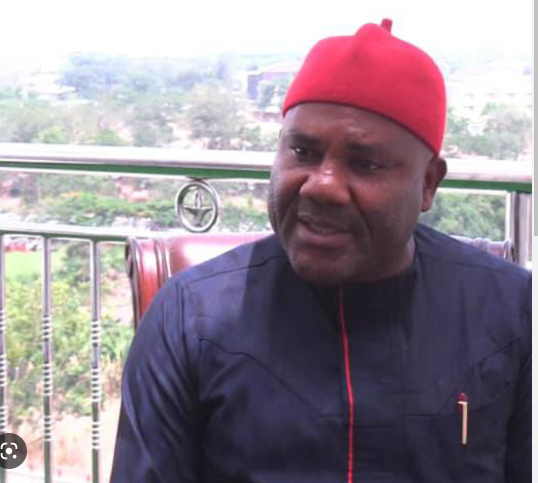Tinubu’s one year in office a reign of economic hardship, says Labour Party Reps
By Jeffrey Agbo
President Bola Tinubu’s one year in office has been a “reign of economic hardship, insecurity and hopelessness,” which negates his campaign mantra of Renewed Hope, the Labour Party (LP) caucus in the House of Representatives has said.
The caucus made this known in a press release on Tuesday signed by its leader, Afam Ogene, as the Tinubu administration marks its first anniversary.
The LP caucus said it is bewildering that the economy of the nation has dangerously continued on a free fall, one year after the inauguration of the current administration, thereby casting a cloud of doubt on the capacity of the All Progressives Congress ((APC) government to rescue the nation from the current situation, especially after what it described as “the precarious eight years of the past administration, characterised by widespread despair.
“After last year’s glitch-determined presidential election, and the legal gymnastics which ratified the indolent behaviour of the electoral umpire, our Caucus had taken a backseat, in the patriotic hope that, maybe, just maybe, the beneficiary administration would be able to wrought magic and pull the nation from the precipice of economic annihilation.
“But, as can be obviously felt by the blind, and seen by the deaf, the entire country has, after one year, come to the full and unambiguous understanding of what President Bola Tinubu meant, when he said that his administration would continue with the ‘legacies’ of his predecessor.”
According to the lawmakers, “The current staggering negative economic indices should alarm every Nigerian, as it has left many previous optimists, including ourselves, in glaring shock.”
It stated that the latest report of the National Bureau of Statistics (NBS), indicated that food inflation rate in March 2024 was 40.01 percent on a year-on-year basis – an increase of 15.56 percent points higher, compared to the 24.45 percent rate recorded in March 2023
“Curiously, the NBS had pointed out that the disturbing rise in food inflation was caused by an increase in prices of garri, millet, bread and cereal, yam, dried fish, meat, and fruits, considered to be mostly every day staple food for the ordinary man, who is now forced to battle with daily hunger as a result of food scarcity and decreasing purchasing power.”
The LP lawmakers also noted that “From 29.9% in January – the highest since 1996 – Nigeria’s general inflation rate today stands at 33.20% and a poverty rate of 38.9%.
“Price of petrol has risen from N238.11 per litre, to N701.24, which is an increase of 194.5 %. Cooking gas price has increased by over 70%, diesel from N844.28 per litre to N1,415.02, which is 67.6% and public debt from N87.38trn to N97.34trn, an increase of 11.4%.
READ ALSO:
Tinubu to address joint session of National Assembly Wednesday
“Also, interest rate for bank loans which manufacturers and small and medium enterprises depend on for business and economic activities has increased in the past year, from 22.41 % to 33.69 %, which is an increase of 31.15 %.

“These verifiable figures and the excruciating living conditions of the people, more than any other thing, underscore the fact that in just one year, the APC government has earned an unenviable record of perpetuating a cycle of poverty and underdevelopment, in spite of the flowery campaign promises it made just last year.”
The caucus said further: “President Tinubu campaigned on the mantra of ‘Renewed Hope Agenda.’ This was anchored on an eight-point agenda, which formed his social contract with the Nigerian electorate: food security, poverty alleviation, growth, job creation, access to capital, inclusion, rule of law and anti-corruption fight.
“This economic plan raised cautious optimism in many because it embodies the concept of utilitarianism – ultimate good to the greatest number.
“But now, we hasten to ask, has Nigerians seen any indication of fulfillment of those promises? On the contrary, the ordinary man on the street is weeping and wailing, with pervasive hunger hunting millions of homes. So, what we see, in actual sense, are failed promises.”
“To make things worse,” the LP Reps continued, “Then in an attempt to stabilize the naira, the government at the beginning of the year committed another faux pas by floating it. This caused the naira to undergo substantial depreciation, such that by February, the naira exchanged at an alarming rate of N1,900 against the dollar in the parallel market – and hasn’t achieved any stability since then.”
In the area of security, the lawmakers said: “In his 80-page manifesto with a 10-point agenda unveiled in October 2022 during the campaigns, President Tinubu had pledged “To establish a bold and assertive policy that will create a strong yet adaptive national security architecture and action to obliterate terror, kidnapping, banditry, and all other forms of violent extremism from the face of our nation.
“Given the security situation today, this appears to be a mere rhapsody of rhetorics, making many to believe that the administration lacks an effective security strategy, as Nigerians are bogged down by incessant abductions, displacements and massacres by non-state actors across the nation.
“As the nation begins the journey into the second year of this administration, we call on President Tinubu to, as a matter of urgency, prioritise on minimizing the suffering of Nigerians, by ensuring food security, access to clean water, healthcare and education.
“Tackling poverty and guaranteeing these necessities are pivotal to the sustenance of peace in the nation.
“We also call on government to intensify the fight against corruption, with transparent governance and accountability being paramount. We also warn that government should desist from throwing the nation to the whims of foreign financial institutions, whose policies in developing countries are often anti-people.”













